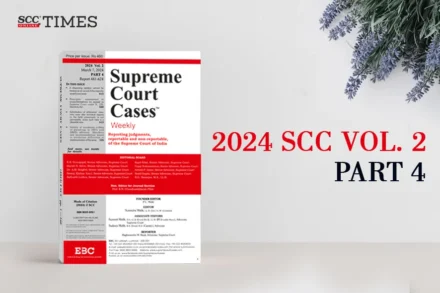
2024 SCC Vol. 2 Part 4
M.P. Municipal Corporation Act, 1956 (23 of 1956) — S. 132(6)(l) — Tax on advertisement: Law clarified on requisites for levy of

M.P. Municipal Corporation Act, 1956 (23 of 1956) — S. 132(6)(l) — Tax on advertisement: Law clarified on requisites for levy of
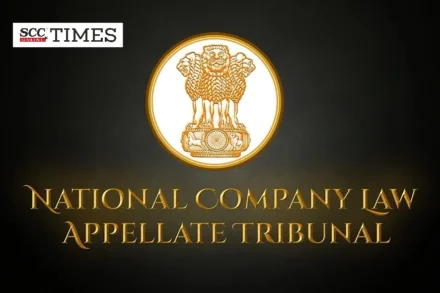
In the instant matter, the NCLT rejected the application, noting the approval of the resolution by the Committee of Creditors and the absence of filing through an authorized representative.
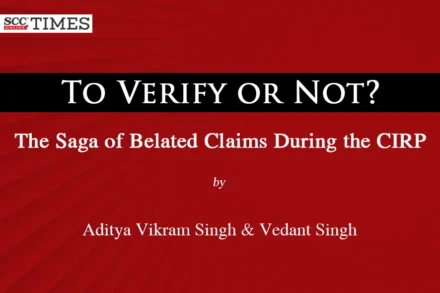
By Aditya Vikram Singh† and Vedant Singh††
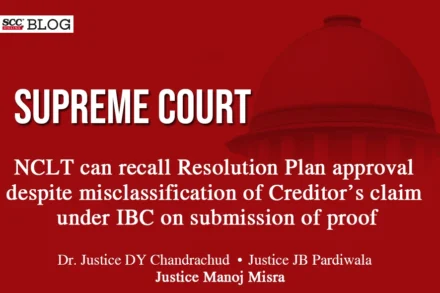
The dues shown payable to the appellant was Rs. 13,47,40,819 while the appellant claimed it to be Rs. 43,40,31,951.
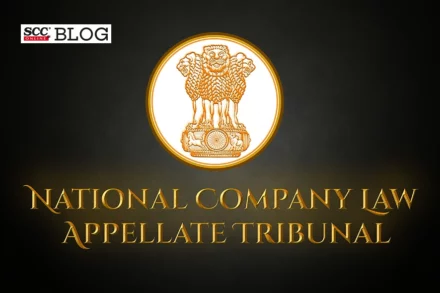
The NCLAT held that the commercial wisdom of the CoC was considered paramount, and no interference was justified.

The NCLAT held that the CoC had the jurisdiction to decide on liquidation as per Section 33(2) and its explanation, even before completing all steps for resolution.

Section 12A was introduced in the Insolvency and Bankruptcy Code, 2016, allowing the withdrawal of CIRP with the approval of 90% voting share of the CoC.
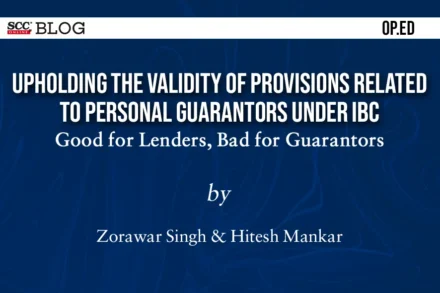
by Zorawar Singh† and Hitesh Mankar††
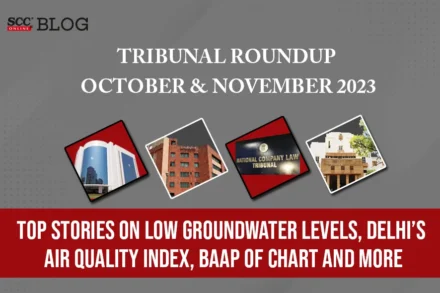
A quick legal roundup to cover important stories from Tribunals, Regulatory Bodies, Commissions for the month of October and November 2023.

The NCLAT directed the Adjudicating Authority to hear and decide the application under Section 7 of the IBC expeditiously, treating it as not covered by Section 10A of the IBC.

“Debt acknowledgment in balance sheets and OTS proposal demonstrated Corporate Debtor’s awareness of assignment, rendering technical challenges unfounded.”

The NCLAT reiterated the importance of adhering to timelines in the Insolvency resolution process and the unacceptability of claims filed after the approval of the Resolution Plan by the CoC.

NCLAT upheld the Adjudicating Authority’s order on finding no error in rejecting the appellant’s objections to the Resolution Plan.

While affirming the impugned order, the NCLAT granted the appellant option to pursue proceedings as per the agreement between the parties before an appropriate forum in accordance with the law.
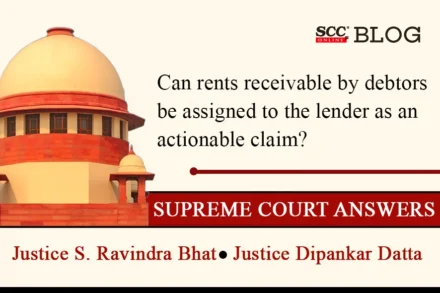
After applying the rule that all the contemporaneous documents are to be read together, to discern the true purport of the contract, Supreme Court said that the parties intended assignment of the debt, i.e., the rents payable.

The NCLAT reiterated that Commercial wisdom of the CoC is crucial in determining the viability and feasibility of a resolution plan.

The main contention of the appellants is that the lay-off notice was not issued in accordance with the provisions of the Industrial Disputes Act, 1947.
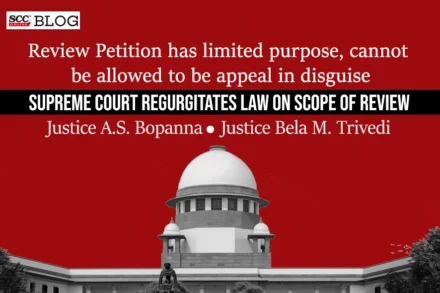
Supreme Court reiterated that a co-ordinate Bench cannot comment upon the judgment rendered by another co-ordinate Bench of equal strength and that subsequent decision or a judgment of a co-ordinate Bench or larger Bench by itself cannot be regarded as a ground for review.

The NCLAT rejected Resolution Professional’s reliance on Section 17 of the Limitation Act, 1963, as no fraud was found on the part of the Corporate Debtor.

A mere availability of arbitration or any other proceeding could not preclude the operational creditor from initiating proceedings under Section 9 of the IBC. The critical question would be whether the application was filed within the limitation period.